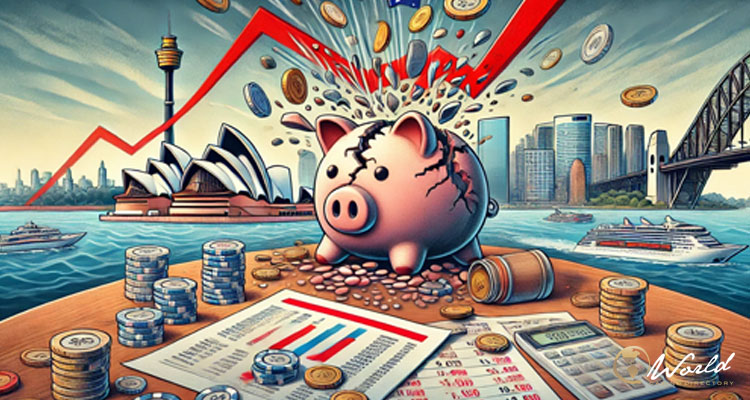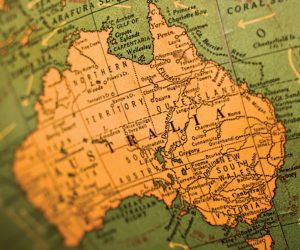Australia Faces Heightened Debate Over Gambling Ad Ban

- by Admin
- August 13, 2024

Australia is currently engulfed in passionate debates surrounding gambling advertising, with fervent discussions hitting the news cycles this month.
The federal government is facing mounting pressure to impose stricter regulations on gambling ads, following alarming statistics and public sentiment pointing to the negative impact on Australian families.
With parliament reconvening, the Albanese government is contemplating new laws intended to limit gambling promotions on television, particularly during times when children are likely to be watching.
Proposals include partial bans and caps on the frequency of ads, contrasting calls from various politicians and advocacy groups for total eradication of gambling ads.
Many proponents for the complete ban argue the current gambling advertising has normalized betting behaviors among younger audiences.
Evidence indicates saturation of gambling ads, especially during sports broadcasts, correlates with increased gambling habits among youth.
A recent report from the Australian Communications and Media Authority highlighted the staggering figure of over one million gambling ads aired on different platforms within just one year.
This greater visibility reportedly contributes to the perception among youth and vulnerable populations, solidifying gambling as both harmless and enjoyable.
Labor and Coalition MPs from various political backgrounds have banded together, intensifying their calls for total reform.
Discussions are centered around the recommendations from the parliamentary inquiry led by late Labor MP Peta Murphy, which advocated for significant restrictions aimed at minimizing advertising’s grip on the public.
Advocates for gambling regulation believe current measures, such as limiting ads to two per hour, will only yield partial results.
The chilling statistic of Australians losing over $25 billion yearly to gambling casts shadows on the legitimacy of half-measures.
This figure equates to the highest per capita gambling expenditure globally, creating true urgency for legislative change.
Dr. Mike Freelander, Labor MP and physician, expressed grave concerns over the negative externalities of gambling, stating, “It’s like transferring billions from poor people to wealthy people. The only solution is strong, decisive action against gambling ads.”
Despite the overwhelming sentiment favoring stronger regulations, significant lobbying efforts from the gambling industry complicate the path forward.
Industry representatives argue against blanket bans, claiming these changes could inadvertently drive consumers to illegal offshore gambling websites.
According to Kai Cantwell, CEO of Responsible Wagering Australia, such restrictions only push gamblers to less regulated, dangerous markets.
He also stated, “Bans on advertising don’t address the core issues of gambling harm. People will always find ways to gamble,” pointing to potential increased usage of offshore sites.
Many experts, financial counselors, and addiction specialists disagree vehemently with this assumption, asserting it distracts from the real issue—protecting young and vulnerable populations.
Notably, the damaging consequences of gambling addiction are severe and include family breakdowns, financial insecurity, homelessness, and even suicide.
Reports suggest children are increasingly exposed to these predatory practices, with some young individuals admitting to associational tendencies with gambling brands.
Quotes from young people reveal troubling thoughts akin to bets being seen as normal and harmless among peers.
The inquiry’s backing for full legal restrictions encountered fierce resistance from gambling advocates, who leveraged lobbying tactics as corporate interests began surfacing.
While advocates push for action, individuals like MP Keith Wolahan have illustrated how much is at stake, insisting the advertising ban is necessary for social welfare.
He remarked, “Gambling often brings false hope but leads to genuine despair among families,” underlining the necessity for the government’s unwavering stance on this pressing issue.
Despite these assertions, some industry leaders maintain it’s their responsibility to market their products, likening gambling to forms of entertainment.
Resistance to limiting advertising is noted starkly when juxtaposed against historical contexts; many recall how tobacco advertising faced backlash leading to eventual nationwide bans.
Former Prime Minister John Howard urged comparable leadership now, emphasizing the dire consequences of gambling addiction on young Australians.
He expressed disappointment over Albanese’s reluctance to take decisive action, drawing parallels between past tobacco legislation and today’s gambling advertisements.
Time and again, studies reveal over 70% of Australians believe gambling advertising should be banned altogether, particularly during family viewing hours.
Market research highlights parental anxiety over such exposure, accentuating public sentiment against the current model of gambling promotions.
Notably, with the Albanese government eyeing media revenue generated from gambling adverts, questions of political prioritization arise.
Media Groups warn drastic cuts to gambling ads threaten their economic viability, potentially stifling independent news voices amid tightening budgets.
Mainstream media began lobbying to maintain some form of gambling revenue, showcasing how intertwined profits are with public health and safety.
Albanese has pointed out the confusion, stating the situation remains untenable, yet he hesitates to implement policies producing potential backlash.
Thus, the risk of playing both sides raises questions about his commitment to Australians struggling with gambling-related consequences.
Following significant delays and backlash from community stakeholders, some advocates found the stalled reforms frustratingly reminiscent of industry pushback we’ve seen before.
Many liken the fight against gambling promotion to previous confrontations with alcohol advertising and the momentous cultural shifts slowly materializing through persistent pressure.
While full implementation remains uncertain, optimism persists as Labor seems poised to endorse bans on social media gambling ads, signaling the possibility for broader action.
Nonetheless, gamers and personal finance advocates remain on high alert as they’ll be waiting to see if their voices are heard.
The inquiry’s report stylishly emphasizes the stark correlation between advertising and gambling behavior, particularly among younger demographics.
Tighter regulations have been long overdue, as the spotlight shifts toward gambling’s multifaceted impact on society.
Once the government outlines plans, many will hope it’s not merely window dressing masking their underlying fears about losing revenue and voter trust.
Now more than ever, the push for reform needs to end stalling, taking its rightful path toward protecting Australians from the gambling epidemic.
The Latest News
-
December 23, 2024Australian tennis star Purcell takes on voluntary provisional suspension for breaking anti-doping rules
-
December 23, 2024Wimbledon champion accepts ban for anti-doping breach just months after winning US Open
-
December 23, 2024Australian tennis star Purcell takes voluntary suspension over anti-doping breach
-
December 23, 2024Max Purcell to miss Australian Open after accepting ban for anti-doping breach
-
December 23, 2024Australian tennis star Purcell provisionally suspended for doping





